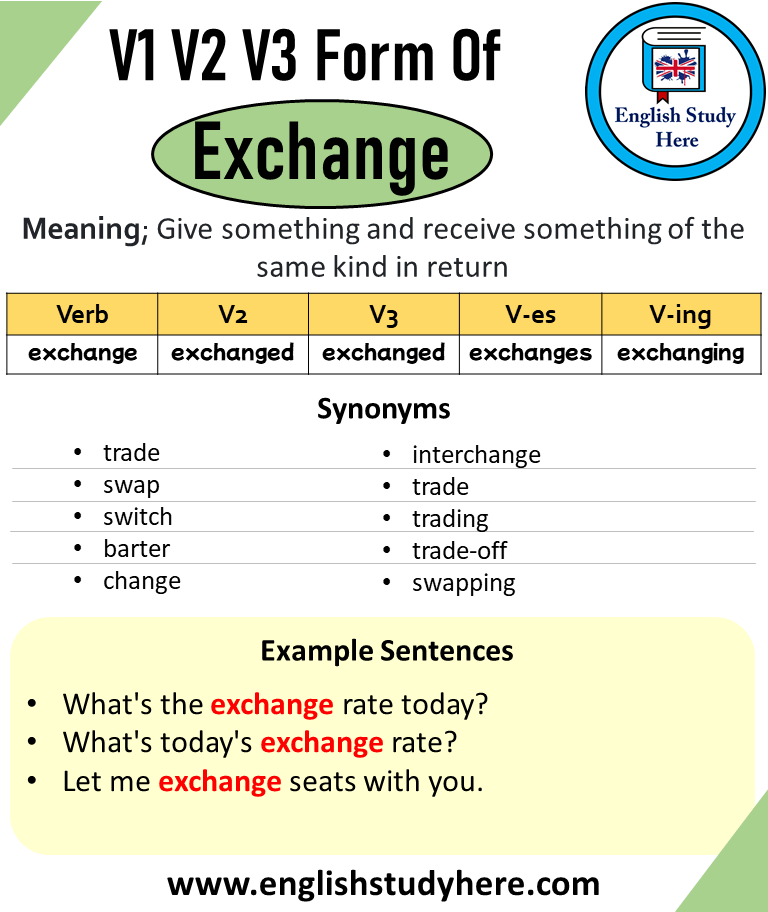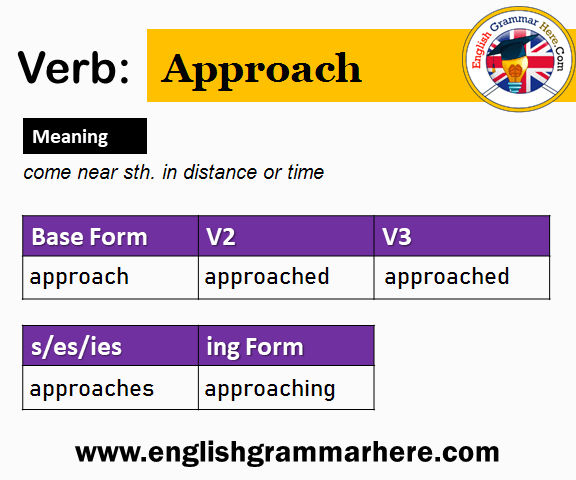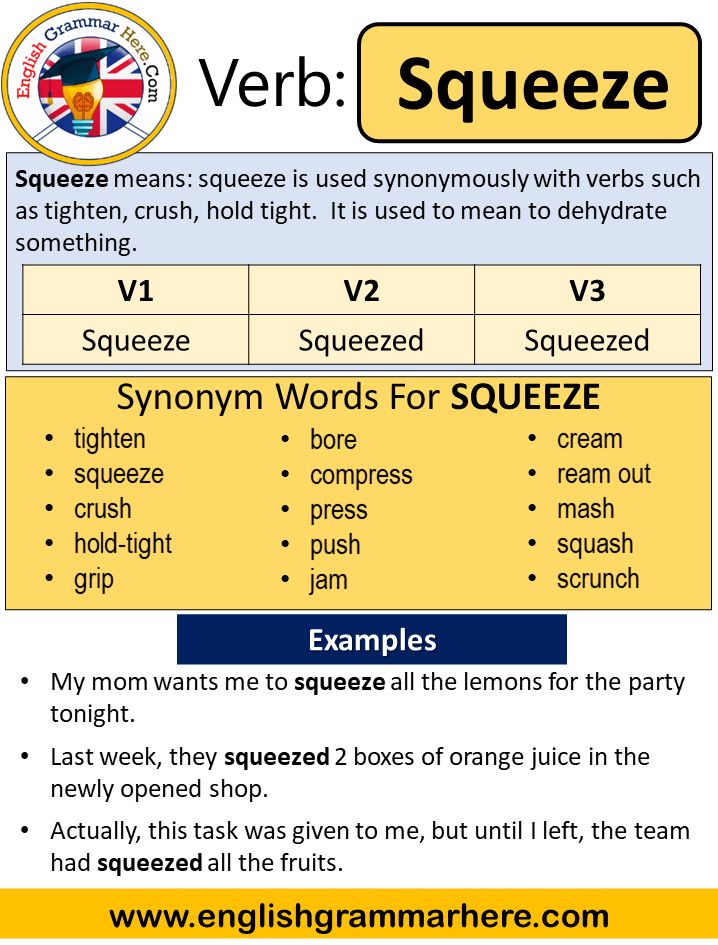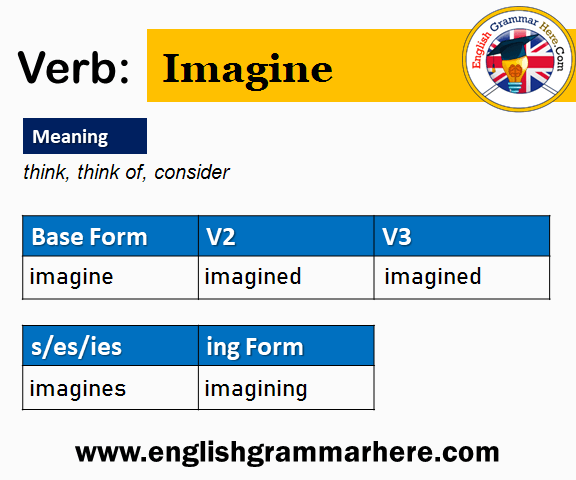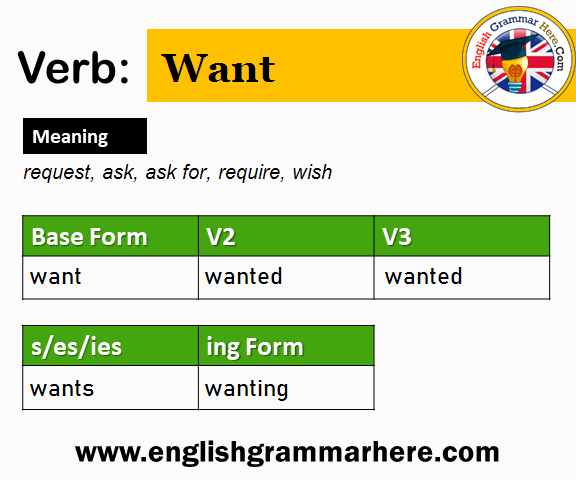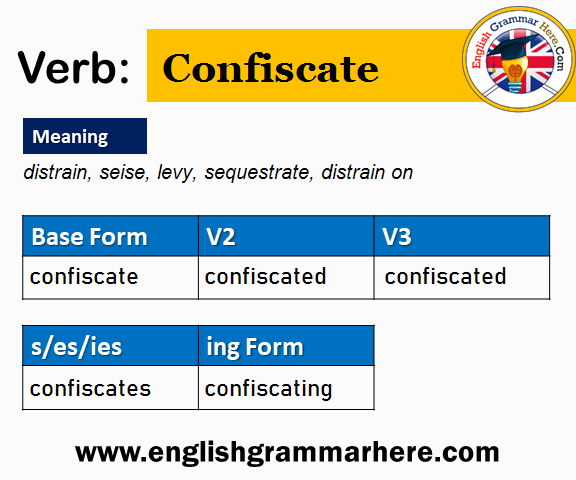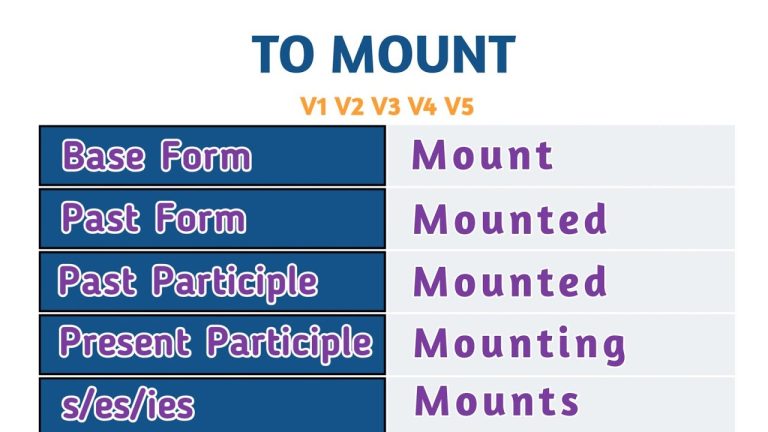Exchange Past And Past Participle Form V1 V2 V3 V4 V5 Form of Exchange
Have you ever wondered about the different forms of the verb “exchange”? Understanding verb forms is crucial for mastering any language, and “exchange” is no exception.
Whether you’re learning English or polishing your grammar skills, knowing the V1, V2, V3, V4, and V5 forms can significantly enhance your communication. Imagine being able to express past actions, ongoing activities, or future plans with ease and confidence. This article is crafted to guide you through the past and past participle forms of “exchange”, along with its other variations.
Dive in, and empower your language skills with this comprehensive breakdown that will make you feel like a grammar pro in no time!

Credit: englishgrammarhere.com
Verb Forms Of Exchange
The verb “exchange” has different forms. The base form is exchange. The past simple form is exchanged. The past participle is also exchanged. For the present participle, use exchanging. The third person singular is exchanges.
| Form | Example |
|---|---|
| Base Form (V1) | exchange |
| Past Simple (V2) | exchanged |
| Past Participle (V3) | exchanged |
| Present Participle (V4) | exchanging |
| 3rd Person Singular (V5) | exchanges |
These forms help show different times. Exchange is a regular verb. Knowing these forms is helpful. You can use them in sentences. Practice to remember them easily.

Credit: www.pinterest.com
Usage Of Past And Past Participle
The word “exchange” changes in different tenses. Past form is “exchanged”. Past participle is also “exchanged”. Present participle is “exchanging”. These forms help in writing sentences. For example, “I exchanged my book yesterday.” Here, “exchanged” is used in the past tense.
In another sentence: “I have exchanged my book.” The word “exchanged” acts as the past participle. Both forms are used for actions completed in the past. This makes it easy to tell stories about what happened.
Examples In Sentences
She exchangesgifts with her friends. Yesterday, he exchangedhis old phone. They have exchangedletters for years. We are exchangingideas for the project. The team will exchangeinformation soon.
I exchangedmy book for a pen. He exchangescoins at the bank. They have exchangedstories before. She is exchangingtickets at the counter.
| Form | Example |
|---|---|
| V1 | exchange |
| V2 | exchanged |
| V3 | exchanged |
| V4 | exchanging |
| V5 | exchanges |

Credit: englishgrammarhere.com
Conclusion
Learning the forms of “exchange” is important for English mastery. These verb forms help in constructing proper sentences. Practice using V1 to V5 forms for better understanding. Each form serves a different purpose in communication. Consistent practice makes these forms second nature.
Use them in your daily conversations or writing. This will boost your confidence in English. Remember, even small steps lead to progress. Keep practicing and you’ll see improvement. Soon, using these verb forms will feel natural. Stay patient and keep learning.
Your efforts will pay off in time.
